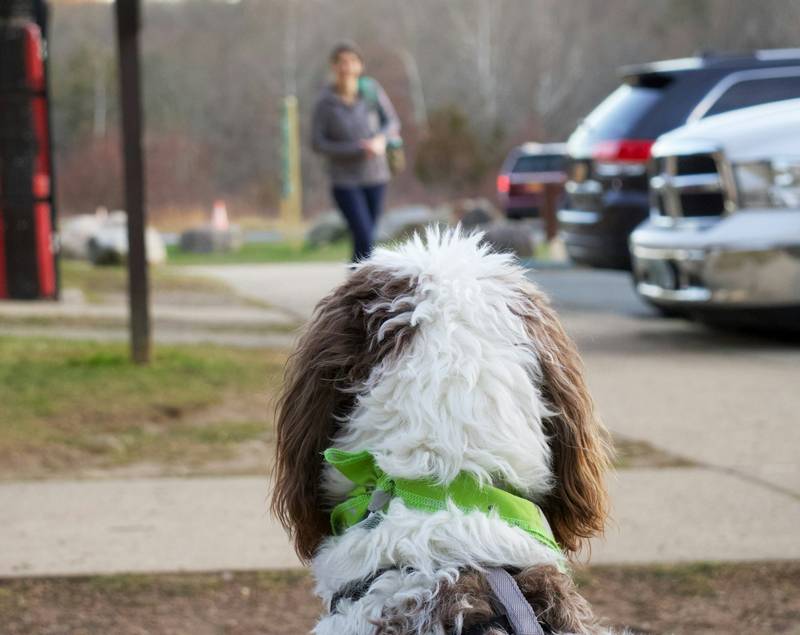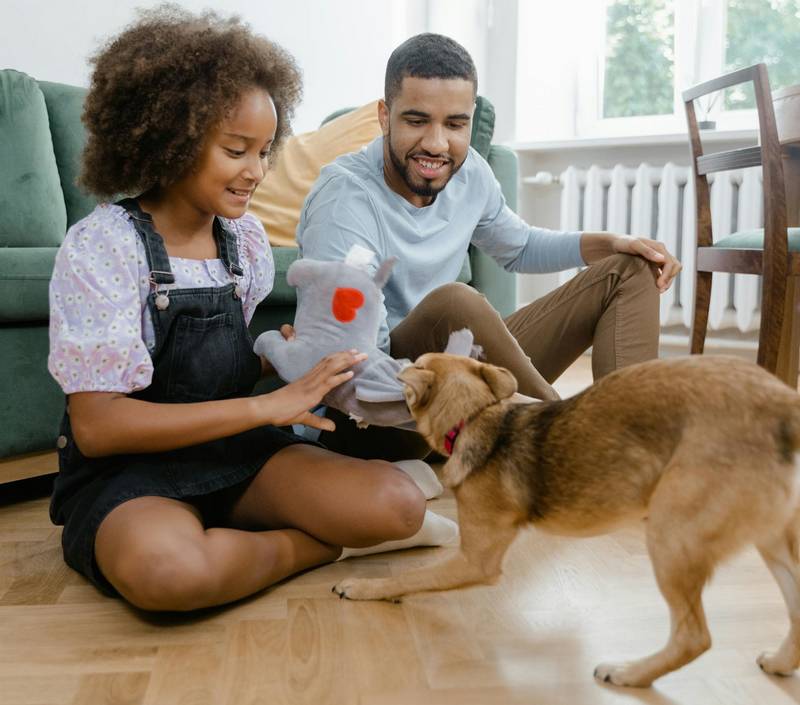Dog Aggressive to House Visitors? How to Calm + Prevent Bites!
Dealing with a dog aggressive to house visitors or worried about a situation where your dog bit a visitor? These are common concerns for dog owners, especially when their pets react negatively to guests. Our guide is designed to address these issues and offer practical solutions.
We’ll explore why some dogs show aggression towards strangers in the house and what you can do to calm them. You’ll learn strategies to help your dog become more friendly with guests, reducing the risk of aggressive incidents. If your dog has already bitten a visitor, we’ll guide you through the immediate steps to take and how to prevent such situations in the future. Keep reading!
Dog Aggressive to House Visitors

If you have a dog aggressive with house visitors, the behavior often stems from fear, territorial instincts, past experiences, or a lack of socialization. Understanding the root cause and implementing strategies to address this aggression is necessary to create a safe and welcoming environment for everyone.
Why Is My Dog Aggressive Towards Strangers in House?
Your dog is aggressive towards strangers in the house due to reasons such as fear, protective instincts, or past negative experiences. Some dogs may see visitors as a threat to their territory or family, leading to aggressive behavior. Identifying the specific triggers is a critical step toward finding a solution.
Dog Aggressive With Visitors to Home: How to Calm
Calming a dog that is aggressive towards visitors involves creating a positive association with guests. Start by keeping your dog at a safe distance from visitors and gradually decrease this distance over time. Reward your dog for calm behavior and use techniques like desensitization and counterconditioning to help them associate guests with positive experiences.
It helps to work on these interactions at a neutral location (like the park), if possible.
How to Get Dog to Be Friendly With Guests
To help your dog become more friendly with guests, consistent training is essential. A useful command in this scenario is “go to your place.” Here’s a brief guide on how to train this command:
- Choose a specific spot like a bed or a mat as ‘their place.’
- Lead your dog to the spot and give the command “go to your place.”
- When your dog goes to the spot, reward them with a treat and praise.
- Practice this regularly, gradually increasing the distance and distractions.
This command is helpful as it gives your dog a specific action to focus on when guests arrive, reducing their stress and potential aggression.
A dog being aggressive towards house visitors is a challenge that can be overcome with patience, understanding, and appropriate training. It’s important to remember, however, that the underlying behavioral issues (overprotectiveness, anxiety, poor socialization, etc.) that were causing all of this to begin with will still be present.
And until you address those, any positive changes you see will only be temporary.
“Well, how do I make these changes last?”
By getting your dog to truly choose to follow your direction, that’s how. I tried many times to write out how you can do that before deciding it made more sense to just link you to the free video series that explains it better than I’d ever be able to.
The series is by a man named Dan who is one of the world’s leading dog obedience trainers. In it, he teaches you how to put an end to things like your dog being aggressive to visitors and all other misbehavior using his fast and easy-to-follow methods.
In the first video, Dan will reveal to you why the two most common methods of dog training only doom you to failure. You can watch the video now by clicking here. Follow the proven system he’ll show you in his series and you’ll never have to spend another second worrying about your dog getting aggressive with guests ever again!
My Dog Bit a Visitor in My Home

If your dog bit a visitor in your home, it’s a serious situation that requires immediate attention. This behavior can be alarming and may stem from various causes such as fear, territorial instincts, or a lack of proper socialization. Addressing the immediate consequences and understanding why the bite occurred is essential for preventing future incidents.
My Dog Bit a Visitor in My House, What Do I Do?
If your dog bit a visitor in your house, immediately separate the dog from the visitor to prevent further injury. Attend to the visitor’s wound (video below) and consider seeking medical attention, especially if the skin is broken. Learn a command that will help prevent future incidents in the first section.
Signs Dog Will Bite Visitors
Recognizing the signs that your dog may bite visitors can help prevent such incidents. Warning signs include barking and growling, baring teeth, stiff body posture, and intense staring. Being alert to these behaviors and knowing how to calm an aggressive dog can help you intervene before a situation escalates to biting.
How to Stop Dog Biting Visitors
Preventing your dog from biting visitors involves training and managing their environment. Teach your dog commands like ‘sit’ and ‘stay’ to control their movement around guests. Socialize your dog gradually to new people in a controlled setting, rewarding calm and non-aggressive behavior.
Additionally, consider creating a safe space for your dog to retreat to when visitors are present if they are prone to anxiety or aggression.
In conclusion, a dog biting a visitor in your home is a critical issue that needs to be addressed promptly and carefully. Understanding the triggers for such behavior, providing appropriate training, and seeking professional advice are key to ensuring the safety of both your visitors and your dog.
You’re probably ready to begin now that you have all of your questions about your dog being aggressive to people that come over answered, so I’ll let you get started on things. Best wishes, and thank you for taking a look at our article “Dog Aggressive to House Visitors? How to Calm + Prevent Bites!”.





